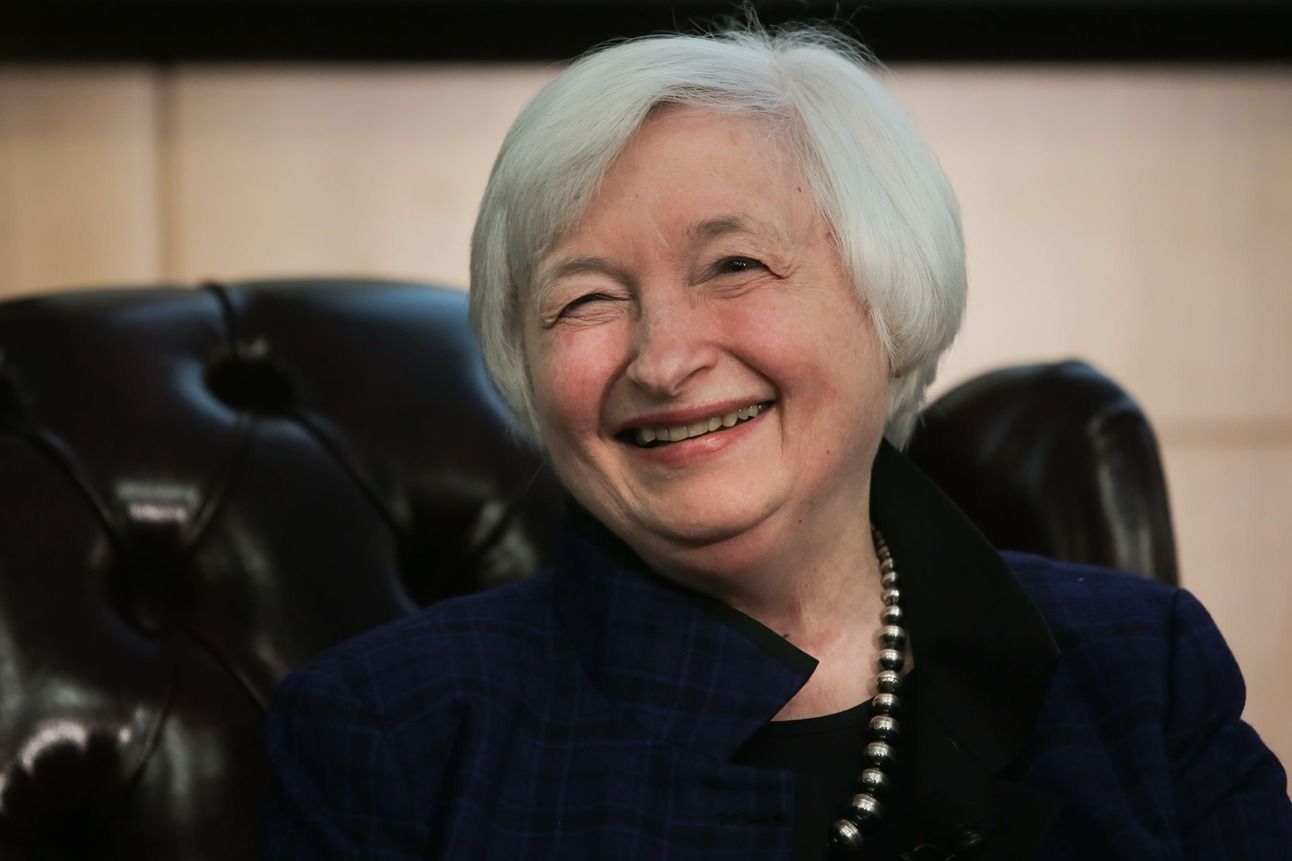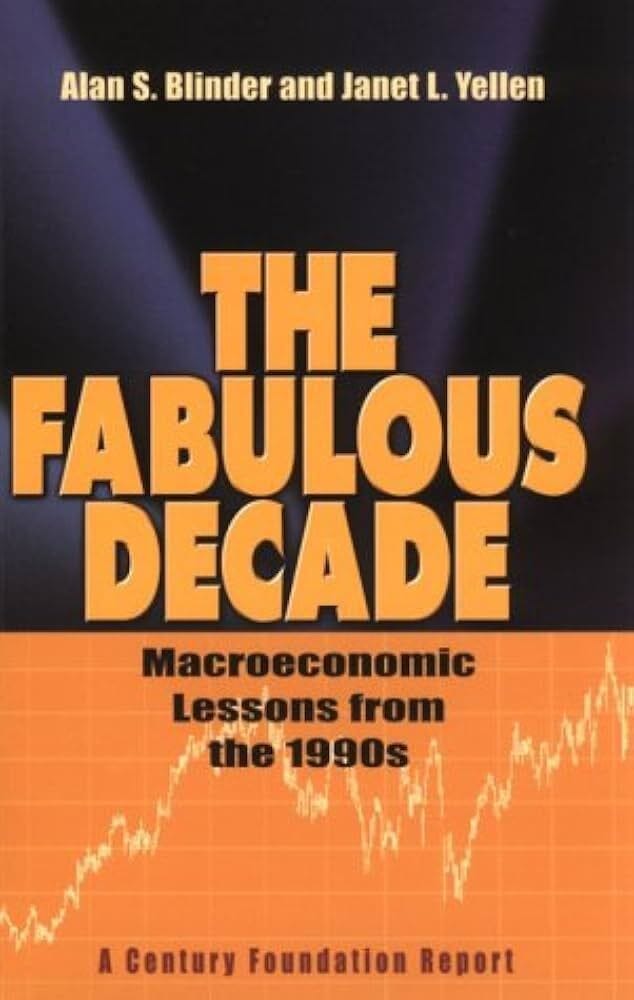- The Weekly Mensch
- Posts
- The Weekly Mensch: Janet Yellen
The Weekly Mensch: Janet Yellen
A lesson of people-centered leadership for clear, quiet, and substantial impact
Us in a Nutshell
We are passionate about the lives, the impact, and the experience of Jewish baby boomers who have changed our world. From finance to the arts, we write about the stories of contemporary heroes who — significantly and meaningfully — changed the face of their respective industries, often starting with nothing but a legacy of exile. We tell their stories for the timeless lessons of intelligence, ethics, and resilience they underline. And we also share some fun anecdotes! Nathan Tob is a fourth-year student at the Queen Mary University of London. He studies Economics, Finance, and Management. Davy Sokolski is a third-year student at Columbia University in New York. He studies International Political Economy.
What is a Mensch?
Leo Rosten defines mensch as “someone to admire and emulate, someone of noble character.” Dr. Saul Levine writes in Psychology Today that a mensch’s personality characteristics include decency, wisdom, kindness, honesty, trustworthiness, respect, benevolence, compassion, and altruism.
Janet’s Rapid Bio

Credit: CNBC
Janet Louise Yellen, born on August 13, 1946, in Brooklyn, New York, was raised in a tight-knit, middle-class Jewish family that instilled in her a deep respect for education, public service, and integrity. Her father, Julius Yellen, was a beloved family physician who ran his practice from the ground floor of their home, while her mother, Anna Ruth Blumenthal, was an elementary school teacher who paused her career to raise Janet and her older brother. The values of diligence, humility, and care for others shaped Yellen from an early age.
A standout student, Yellen graduated as valedictorian from Fort Hamilton High School before going on to study economics at Brown University, where she developed an enduring interest in the intersection of public policy and human well-being. She earned her Ph.D. in economics from Yale University in 1971, studying under Nobel laureates like James Tobin. At a time when few women entered economics, Yellen distinguished herself with her rigorous thinking and quiet tenacity.
She began her academic career teaching at Harvard and later joined the Federal Reserve Board of Governors as a staff economist in 1977. Over the next several decades, Yellen moved seamlessly between academia and public service, holding senior positions at the University of California, Berkeley, and later serving as Chair of President Clinton’s Council of Economic Advisers. She also became president of the Federal Reserve Bank of San Francisco, where she was among the first to raise alarms about the looming housing crisis.
In 2014, she made history as the first woman appointed Chair of the Federal Reserve, leading the central bank through a critical period of post-recession recovery. Yellen’s tenure was marked by her emphasis on inclusive growth, cautious interest rate policy, and a focus on labor market healing—a reflection of her belief that economics should serve people, not just numbers.
Her pioneering journey continued in 2021 when she was appointed by President Joe Biden as the first woman to serve as U.S. Treasury Secretary. From managing pandemic-era economic challenges to championing global tax reform and sustainable economic recovery, Yellen has remained a steady hand and a moral compass in times of turbulence.
A lifelong advocate for evidence-based policy and economic fairness, Janet Yellen is known not for flashy rhetoric but for her unmatched intellect, methodical leadership, and deep sense of public duty. She has become one of the most influential economic thinkers of our time, quietly reshaping global economic policy while breaking barriers and modeling what leadership grounded in clarity, compassion, and competence truly looks like.
Janet’s Life Lessons
1. Lead with clarity, not volume
Janet Yellen’s leadership has always stood out not for its flash, but for its clarity. In a world of high-stakes decisions and strong opinions, she never raised her voice, she raised the level of conversation. When she was appointed Chair of the Federal Reserve in 2014, the first woman in U.S. history to hold the role, Yellen was tasked with guiding the country through a fragile economic recovery. While some economists delivered dramatic forecasts or politically charged declarations, Yellen focused on the data, spoke in deliberate tones, and explained complex ideas with uncommon precision. Even during tense congressional hearings, she rarely showed frustration or defensiveness, calmly stating, “I don’t view myself as a very flashy person. I’m just trying to get the job done.” A former Fed colleague once remarked, “Janet doesn’t speak often, but when she does, everyone listens. She earns her influence with substance.”
Leadership isn't about volume, it's about vision, integrity, and the courage to be steady. She shows us that clarity is power. When we focus less on dominating the conversation and more on saying something meaningful, we earn the trust that endures. Her style is a reminder that quiet voices can lead loudly if they are grounded in truth, wisdom, and purpose.
2. Put people at the center of policy
Janet Yellen has always grounded her economic philosophy in human impact. Her focus wasn’t just on figures like inflation or GDP, it was on how those numbers affected real lives. As Fed Chair and later as Treasury Secretary, she championed full employment not just as a target, but as a moral imperative. A revealing moment came during a 2014 speech in Boston, where she departed from typical economic jargon and spoke candidly about income inequality, drawing on stories of real American families. “The distribution of wealth and income in the United States has been widening,” she said, “to a degree that for many Americans undermines the value of hard work and the promise of equal opportunity.” For Yellen, policy wasn’t just about market forces, it was about fairness, opportunity, and dignity.
Leadership considers not just outcomes, but the people behind them. Yellen’s legacy reminds us that no matter how complex the challenge, solutions should always be judged by how they serve human needs. In any field, putting people first isn’t just compassionate. It’s smart policy. When we center the human experience, we create systems that are not only efficient but just.
3. Break barriers with quiet resolve
Janet Yellen shattered one glass ceiling after another, not through grandstanding, but through relentless competence and quiet determination. She was the first woman to lead the Federal Reserve, the Council of Economic Advisers, and the U.S. Treasury, a trio of historic appointments. Yet Yellen never made her gender the centerpiece of her story. She let her work speak louder than any label. When she was appointed Fed Chair in 2014, many headlines focused on her being “soft-spoken” or “reserved,” but those closest to her knew her strength came from rigorous thought, unshakable focus, and a deep commitment to doing the job right. “I don’t feel like I’ve broken barriers,” she once remarked. “I just got up every day and tried to do my best.” Her style-precise, thoughtful, and grounded-stood in contrast to louder voices, but proved no less impactful.
You don’t need to shout to be heard. Yellen’s path shows that determination, humility, and excellence can break down the hardest walls. True trailblazing doesn’t always look dramatic, it often looks like doing the work day after day with grace, consistency, and integrity. Her journey reminds us that we can make history not by demanding attention, but by commanding respect.
The Quote of The Week
“If there is a job that you feel passionate about, do what you can to pursue that job; if there is a purpose about which you are passionate, dedicate yourself to that purpose”

Reply